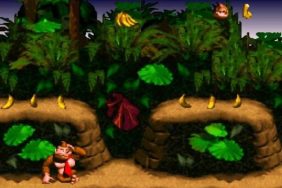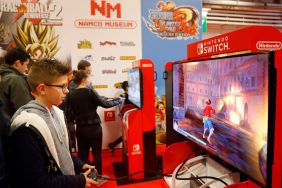The internet is abuzz today with speculation over Nintendo’s future, or lack thereof.
The company has issued a profit warning, lowering its forecast of global Wii U sales for the year from 9 million units to 2.8 million, a cut of around 70%. The 3DS took a bump, too, with its forecast dropping from 18 million units to 13.5 million. So how long will it be until we see Mario double-jumping onto iPhones, as Nintendo listens to all the feedback it’s received over the past year and decides to go third-party with its software? The answer, as Nintendo’s detractors will hate to hear, is probably never.
In 2012, Nintendo reported their first annual loss in three decades. That means that across the releases of the NES, Game & Watch, SNES, Virtual Boy, Game Boy, Game Boy Color, Nintendo 64, Gameboy Advance, Gameboy Advance SP, Gamecube, Wii, Nintendo DS and Nintendo DSi, the hardware giant had turned a profit. Facts released by the UK’s Official Nintendo Magazine revealed the extent of these profits in the same year, revealing that the company had an astounding 812.8 billion Yen ($10.5/£6.7 billion) in the bank. This means that Nintendo could make a 20 million yen (/$257/£163 million) loss each year until the year 2052.

So given this information, why do people still insist that the poor sales of the Wii U is Nintendo’s death croak? Firstly, we have to take into account that this information isn’t exactly widely known. People will see the Wii U’s sales and read the disastrous news stories, such as how the PS4 outsold its lifetime sales within the first 48 hours of being on sale in the UK, and will immediately assume that this means Nintendo will be filing for bankruptcy within the year. Secondly, the gaming community is filled with people who want to witness the demise of the “competitors” of the console they have purchased. These people view the so-called “Console War” much in the same way that sports fans will view a football season – they can only support one team, so all other teams must therefore be derided.
But the truth is, while the PS4 and Xbox One are competing head-to-head by virtue of both systems attempting to appeal to the same market, Nintendo has distanced themselves from this market since the launch of the Wii. They have enough money in the bank to take risks and to try to bring something new into our living rooms, which is what the Wii U is. Unfortunately, it hasn’t had the games or the correct marketing to appeal to a wider audience yet. At this point in time it’s uncertain whether or not the console is doomed for financial failure, though if this is the case, then that still won’t spell the end of Nintendo’s hardware ventures.

Nintendo wouldn’t have so consistently turned profits had they solely been a software manufacturer. Nintendo have a litany of legitimate system-selling exclusive series, all of which push its hardware sales. People buy Nintendo consoles specifically to play Nintendo games, but aside from Pikmin 3 and Super Mario 3D World, both of which have considerably bolstered the Wii U’s “minimalist” line-up, the Wii U experienced a game drought that, unless they can turn things around with Mario Kart 8 and Super Smash Bros. U this year, may ensure that the console will experience the same fate as the Gamecube.
But if that is to be the case, then Nintendo has enough money behind it to move onto the next piece of hardware, despite the dent in credibility they’ll suffer. It isn’t going to sell the series that have ensured the companies’ steady profitability over the last 30 years to the highest bidder, not because of its perceived stubbornness, but because it would be bad business. Regardless of the Wii U’s fate, Nintendo will be just fine.







